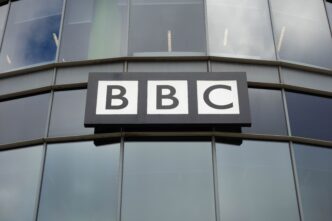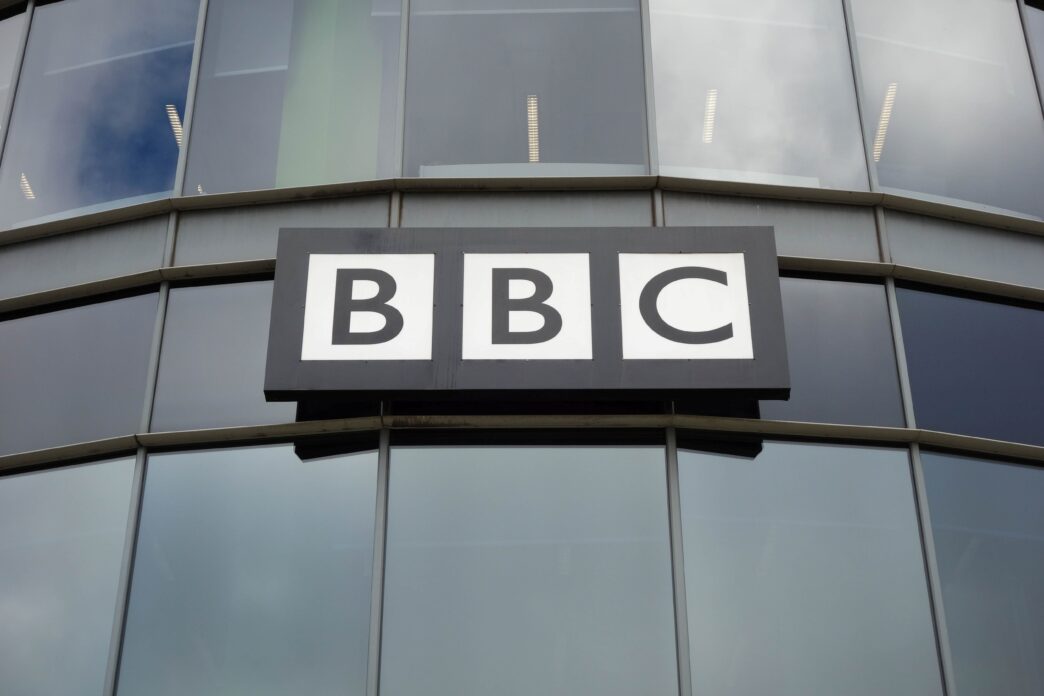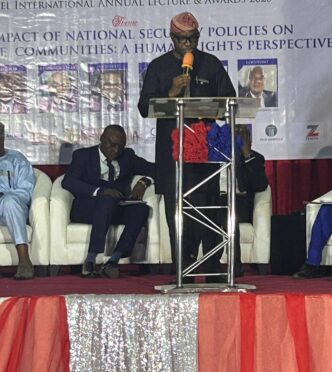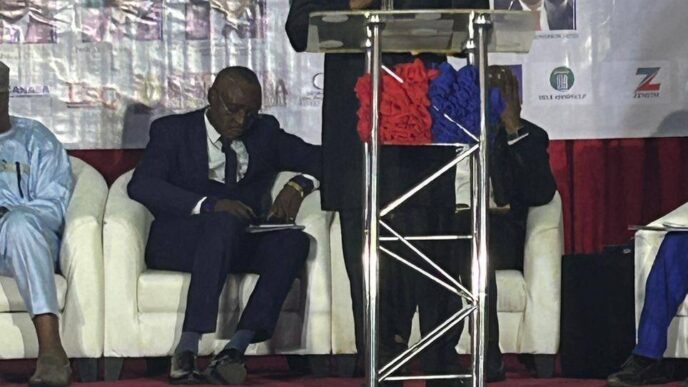The British Broadcasting Corporation (BBC) has been thrown into turmoil following the resignation of its Director General, Tim Davie, and BBC News Chief Executive, Deborah Turness after allegations that the broadcaster aired a misleadingly edited clip of former U.S. President Donald Trump’s speech about the January 6, 2021, Capitol riot.
The controversy stems from a Panorama documentary that appeared to show Trump directly encouraging his supporters to attack the U.S. Capitol. In the unedited version of the speech, however, Trump was heard urging his followers to “cheer on our brave senators and congressmen and women,” rather than calling for violence. The revelation sparked outrage and accusations that the BBC had deliberately manipulated the footage to misrepresent Trump’s remarks.
The fallout led to a wave of political and public criticism, forcing both Davie and Turness to step down on Sunday. Their resignations have been described as one of the most significant leadership shake-ups in the BBC’s history. The broadcaster’s chair, Samir Shah, called it “a sad day for the BBC” and confirmed that he will appear before the UK Parliament’s Culture, Media and Sport Committee to explain how the error occurred. Reports suggest that the BBC is preparing a public apology to address the matter.
Read Also: Over 200 Women Benefit from Breast Cancer Awareness Programme in Oshodi-Isolo
Ibeju-Lekki Launches House-to-House Polio Immunisation Campaign
Former President Donald Trump celebrated the resignations, accusing the BBC of being “corrupt” and “dishonest.” He argued that the incident confirmed his long-standing claims of media bias against him. In Britain, reactions have been divided along political lines. Conservative Party leader Kemi Badenoch welcomed the resignations, describing them as “long overdue” after “a catalogue of serious editorial failures.” Former Prime Minister Boris Johnson also weighed in, threatening to stop paying his BBC licence fee.
In contrast, Liberal Democrats leader Ed Davey came to the BBC’s defence, urging Prime Minister Keir Starmer to resist pressure from Trump and American conservatives. “It’s easy to see why Trump wants to destroy the world’s number one news source,” Davey said. “We can’t let him.”
The crisis comes at a critical moment for the BBC, as the UK government prepares to review its Royal Charter, the legal framework that defines the corporation’s independence and public mission. The current charter expires in 2027, and the upcoming review is expected to determine the broadcaster’s future direction and funding model. Culture Secretary Lisa Nandy described the bias allegations as “incredibly serious,” saying the review would help the BBC “adapt to a new era of accountability and transparency.”
Davie, who had led the BBC since 2020, was often referred to as “Teflon Tim” for his ability to survive past scandals. In his resignation statement, he said he hoped his successor would “positively shape the BBC’s next chapter.” However, this latest controversy proved too severe to overcome, with internal memos and media investigations pointing to multiple lapses in editorial judgment.
The BBC has faced mounting criticism in recent years over its impartiality. Earlier in 2025, it apologised for “serious flaws” in the production of another controversial documentary, Gaza: How to Survive a Warzone, which was later sanctioned by the UK media regulator for being “materially misleading.” The broadcaster has also been accused of bias by both pro-Israeli and pro-Palestinian groups over its coverage of the Gaza conflict.
The current scandal began after the Daily Telegraph reported details from an internal memo written by Michael Prescott, a former adviser to the BBC’s editorial standards committee, who warned of “systemic weaknesses” in editorial oversight. He specifically cited the Panorama documentary on Trump as a “serious breach of trust” that could damage the BBC’s global reputation.
As the corporation begins its search for new leadership, observers warn that the crisis poses a serious threat to public confidence in the BBC’s impartiality. Once seen as the gold standard for journalism, the broadcaster now faces one of the most challenging periods in its century-long history as it struggles to rebuild credibility, secure future funding, and restore trust among its global audience.













